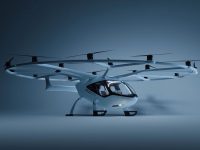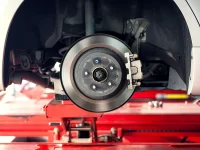The role of iot in enhancing refrigerated logistics

The integration of the internet of things (iot) technology in refrigerated logistics is revolutionizing how temperature-sensitive products are transported and stored. Iot offers unprecedented levels of visibility, control, and optimization, enabling more efficient and reliable cold chain operations. This article explores the transformative role of iot in enhancing refrigerated logistics, focusing on its impact on monitoring, compliance, efficiency, and innovation.
Real-time monitoring and control
Temperature and humidity tracking
Iot-enabled sensors provide real-time monitoring of temperature and humidity levels within refrigerated units. This continuous monitoring is crucial for maintaining the quality and safety of perishable goods, such as food products and pharmaceuticals.
Geolocation tracking
Iot devices equipped with gps technology enable real-time tracking of the location of refrigerated shipments. This allows logistics companies and customers to know the exact whereabouts of their goods and estimated delivery times.
Enhanced compliance and safety
Regulatory compliance
Iot technology helps in ensuring compliance with strict industry regulations, such as the food safety modernization act (fsma). Automated data logging and reporting capabilities of iot devices make it easier to maintain accurate records for audits and inspections.
Proactive risk management
Iot systems can alert operators to potential issues, such as temperature deviations or equipment malfunctions, allowing for proactive measures to mitigate risks and prevent spoilage or loss of cargo.
Improved operational efficiency
Predictive maintenance
Iot technology enables predictive maintenance of refrigerated transport equipment. By analyzing data on equipment performance, maintenance needs can be anticipated, reducing downtime and extending equipment lifespan.
Route optimization
Integrating iot data with advanced analytics and routing software can optimize delivery routes. This not only saves time and fuel but also reduces the environmental impact of refrigerated transport operations.
Data-driven decision making
Analytical insights
The vast amount of data generated by iot devices can be analyzed to gain insights into operational efficiencies, consumer trends, and supply chain performance. This data-driven approach aids in making informed business decisions.
Inventory management
Iot systems can enhance inventory management by providing accurate data on stock levels, shelf life, and storage conditions, leading to better demand forecasting and reduced wastage.
Sustainability and environmental impact
Reducing carbon footprint
Iot can help reduce the carbon footprint of refrigerated logistics by optimizing routes, reducing idle times, and improving the overall energy efficiency of refrigeration units.
Smart energy management
Iot devices can monitor and manage the energy consumption of refrigerated warehouses and vehicles, contributing to more sustainable operations.
Challenges and future outlook
Security and data privacy
As with any iot application, ensuring the security of the devices and the privacy of the data collected is a significant challenge.
Integration with existing systems
Integrating iot solutions with existing logistics and it systems can be complex and requires careful planning and execution.
Ongoing innovation
The field of iot in refrigerated logistics is continuously evolving. Staying abreast of technological advancements and adopting innovative solutions will be crucial for companies to remain competitive and efficient.
Conclusion
The role of iot in enhancing refrigerated logistics is becoming increasingly pivotal. By providing real-time monitoring, improving compliance, increasing operational efficiency, enabling data-driven decision-making, and contributing to sustainability, iot technology is setting new standards in the transportation and storage of temperature-sensitive products. As the technology continues to evolve, its adoption in the refrigerated logistics industry promises to bring even greater advancements and efficiencies.







